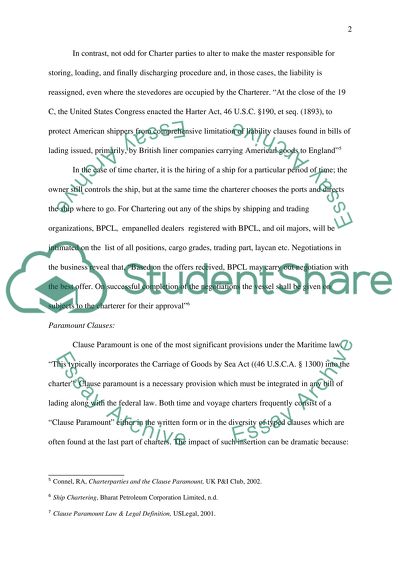Cite this document
(“Maritime Law/ Charter Parties Essay Example | Topics and Well Written Essays - 2000 words”, n.d.)
Maritime Law/ Charter Parties Essay Example | Topics and Well Written Essays - 2000 words. Retrieved from https://studentshare.org/law/1443967-maritime-law-charter-parties-the-question-is
Maritime Law/ Charter Parties Essay Example | Topics and Well Written Essays - 2000 words. Retrieved from https://studentshare.org/law/1443967-maritime-law-charter-parties-the-question-is
(Maritime Law/ Charter Parties Essay Example | Topics and Well Written Essays - 2000 Words)
Maritime Law/ Charter Parties Essay Example | Topics and Well Written Essays - 2000 Words. https://studentshare.org/law/1443967-maritime-law-charter-parties-the-question-is.
Maritime Law/ Charter Parties Essay Example | Topics and Well Written Essays - 2000 Words. https://studentshare.org/law/1443967-maritime-law-charter-parties-the-question-is.
“Maritime Law/ Charter Parties Essay Example | Topics and Well Written Essays - 2000 Words”, n.d. https://studentshare.org/law/1443967-maritime-law-charter-parties-the-question-is.


